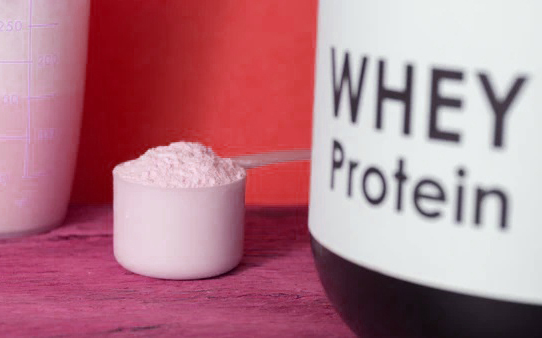Nikhil Prasad Fact checked by:Thailand Medical News Team Oct 27, 2025 3 months, 18 hours, 59 minutes ago
Medical News: Growing Global Interest in a Natural Cancer Support Solution
Cancer continues to be one of the world’s biggest health challenges, affecting millions of people each year. Researchers from Uludag University in Turkey, Balikesir University in Turkey, and “Constantin Brancusi” University of Târgu-Jiu in Romania have found that whey proteins—the same byproduct obtained during cheese making—may play an important role in cancer prevention and supportive treatment. Their comprehensive analysis reviewed more than two decades of research showing that whey proteins have strong antioxidant, immune-boosting, and tumor-fighting effects. According to this
Medical News report, the findings suggest that these milk-derived compounds could be used to improve patient nutrition and enhance the effectiveness of existing cancer therapies.
 Whey Proteins Emerging as Natural Allies in Cancer Prevention and Care
What Are Whey Proteins and Why Are They Important
Whey Proteins Emerging as Natural Allies in Cancer Prevention and Care
What Are Whey Proteins and Why Are They Important
Whey proteins make up about 20% of the protein content in milk and include powerful components such as lactoferrin, β-lactoglobulin, and α-lactalbumin. These bioactive proteins have long been known for their health benefits, but scientists now believe they might influence the body’s defense against cancer. The study team analyzed 24 laboratory and clinical trials from 2000 to 2024 and discovered that whey proteins help the body in multiple ways—by reducing oxidative stress, supporting immune cells, triggering cancer cell death (apoptosis), and blocking tumor growth pathways like PI3K/Akt, mTOR, and Wnt/β-catenin. They also found that the form of whey used—whether concentrate, isolate, or hydrolysate—matters because each affects how the body absorbs and responds to it.
Key Findings Across Different Cancer Types
For colorectal cancer, studies showed that patients who received whey protein supplements experienced improved muscle mass, fewer side effects from chemotherapy, and better immune responses. Laboratory research confirmed that whey protein peptides can control gut bacteria, reduce inflammation, and stop tumor cells from spreading. In breast cancer models, whey protein was shown to slow cancer cell growth, block angiogenesis (the formation of new blood vessels feeding tumors), and even improve the effects of chemotherapy drugs like doxorubicin. Some researchers also noted that whey proteins might improve mental health in cancer patients by regulating tryptophan metabolism and gut microbiota, which are linked to mood and stress control. In liver and prostate cancer models, whey protein helped limit oxidative damage, while in multiple myeloma and lung cancer cells, it induced apoptosis through caspase activation—essentially pushing the cancer cells to self-destruct.
How Whey Proteins Work at the Molecular Level
Whey proteins act through several biological mechanisms. They can enhance the body’s antioxidant capacity by increasing glutathione—a molecule that helps neutrali
ze harmful free radicals. They also regulate cell signaling pathways that control growth and inflammation, such as the NF-κB, AKT/mTOR, and MAPK pathways. Some peptides from whey proteins, such as lactoferricin, even chelate iron, reducing the oxidative damage that contributes to tumor formation.
Moreover, animal studies have revealed that these proteins can delay the development of chemically induced tumors and strengthen immune functions, suggesting that they could be used both as preventive and supportive therapies.
The Promise and the Path Forward
The researchers concluded that while the evidence is promising, most studies have been preclinical or small in scale. Larger and well-structured clinical trials are needed to confirm exactly how much whey protein can benefit cancer patients, what dosage is most effective, and how it can be safely combined with standard treatments. Nevertheless, the consistent findings of tumor reduction, improved nutrition, and fewer side effects from chemotherapy highlight whey proteins as a safe, affordable, and natural option that could complement modern oncology treatments. Their use may also help bridge the gap between nutrition and medicine, offering cancer patients better quality of life and potentially improved treatment outcomes.
The study findings were published in the peer-reviewed International Journal of Molecular Sciences (IJMS).
https://www.mdpi.com/1422-0067/26/21/10406
For the latest on Cancer Research, keep on logging to Thailand
Medical News.
Read Also:
https://www.thailandmedical.news/articles/cancer
